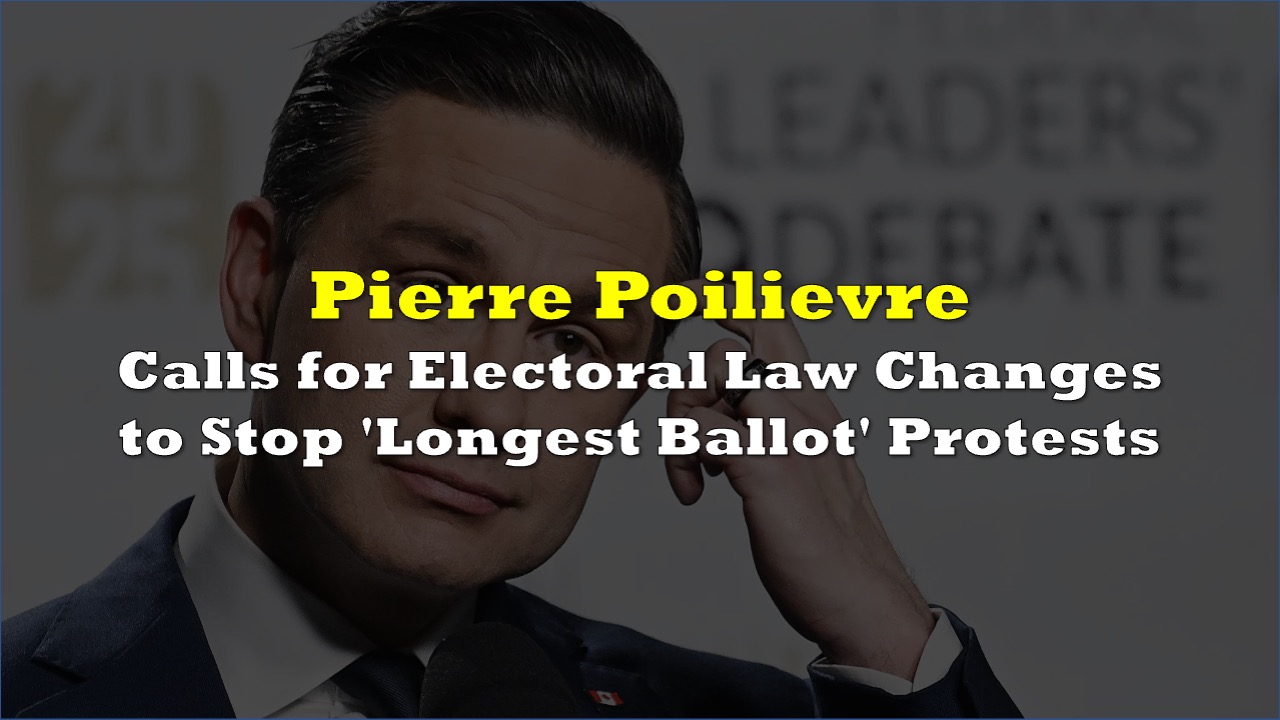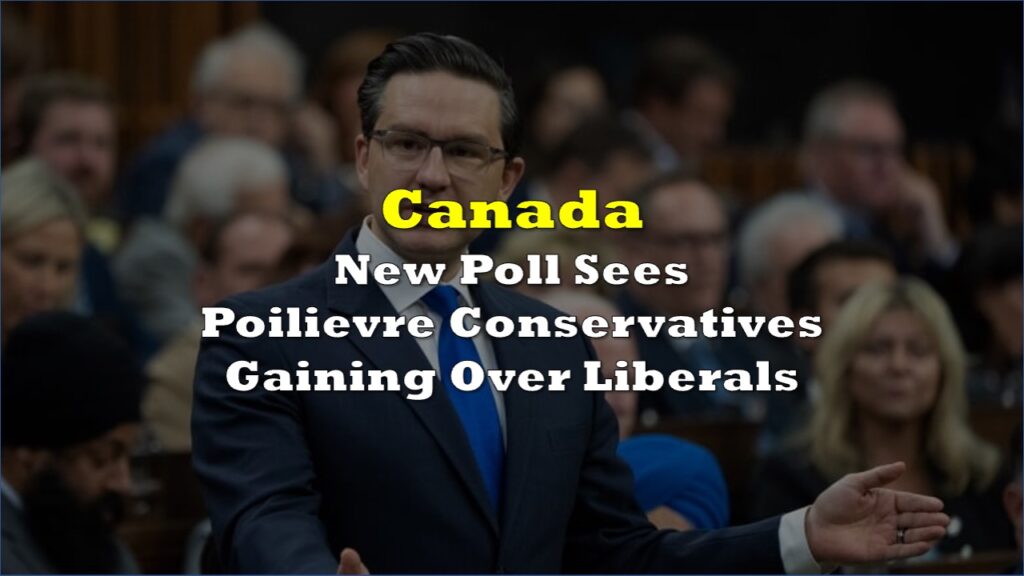Conservative Leader Pierre Poilievre is demanding the Canadian government pass legislation to prevent advocacy groups from flooding ballots with hundreds of candidates, calling the practice a “scam” that undermines democracy.
In a letter Tuesday to Government House Leader Steven MacKinnon, Poilievre proposed raising the signature requirement for federal candidates from 100 to 0.5% of a riding’s population — approximately 600 signatures based on current averages. He also wants voters restricted to signing only one nomination form.
Requiring 0.5% of people in a riding to sign to endorse a candidate would be the end of independent candidates without the backing of a major party. https://t.co/jNSxlpjWfX
— Millennial Moron (@Mill_Moron) July 22, 2025
The proposals target the Longest Ballot Committee, an electoral reform group that has organized record-breaking numbers of candidates in recent elections. The group placed 91 candidates on the ballot in Poilievre’s former Ottawa-area riding of Carleton in April, contributing to his electoral defeat, and is now planning to register over 200 candidates in his new Alberta riding of Battle River-Crowfoot for an August byelection.
“This is not democracy in action. It is a deliberate attempt to manipulate the rules, confuse voters and undermine confidence in our elections,” Poilievre wrote.
The committee argues politicians have conflicts of interest when setting electoral rules and advocates for citizens’ assemblies to oversee election law. The group protests Canada’s first-past-the-post voting system and wants proportional representation.
“When it comes to election law, politicians just have too much skin in the game to be calling the shots,” the committee said in a statement, calling Poilievre’s proposals “downright dangerous.”
The long ballots have caused vote-counting delays and voter confusion. Chief Electoral Officer Stéphane Perrault has warned the practice could hinder voting for Canadians with language or accessibility barriers due to smaller font sizes on larger ballots.
Currently, federal candidates need 100 signatures from eligible voters in their riding to appear on ballots, with no restriction on voters signing multiple nomination forms. The committee uses the same official agent to represent all their candidates.
Critics argue Poilievre’s proposed changes would make it significantly harder for independent candidates without major party backing to run for office, potentially limiting democratic participation.
As of Tuesday, 178 candidates had registered for the Battle River-Crowfoot byelection, already setting a new Canadian record for most candidates on a federal ballot.
Information for this story was found via the sources and companies mentioned. The author has no securities or affiliations related to the organizations discussed. Not a recommendation to buy or sell. Always do additional research and consult a professional before purchasing a security. The author holds no licenses.









